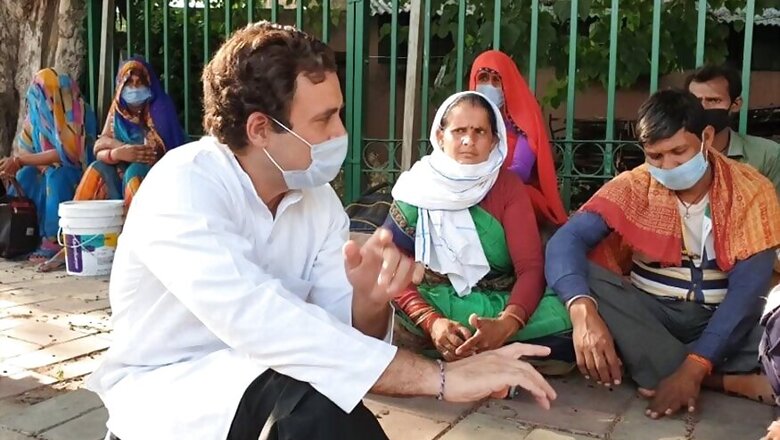
views
New Delhi: 'Bhaiyya' or brother — a humble salutatory used mainly by residents of Uttar Pradesh and Bihar came under sudden spotlight when Congress leader Rahul Gandhi used it to address the director of Harvard Global Health Institute.
"Yeh bhaiya bataiye ki vaccine kab aayegi?" Gandhi asked the health expert as he donned the role of a journalist yet again.
"Yeh bhaiya bataiye ki vaccine kab aayegi?," Rahul Gandhi to public health expert Prof Ashish Jha, to which Jha says, "I am very confident a vaccine will come by next year". pic.twitter.com/xBUb6zLXKI— ANI (@ANI) May 27, 2020
The question may not be unusual but the address could be seen by some as an addition to Congress's attempt to reach out to the Purvanchalis.
This also comes at a time when the party has gone all-out to attack the Centre over the issue of migrants. Party president Sonia Gandhi had recently announced that Congress would sponsor the rail journeys of migrants going home. The majority of these labourers belong to Uttar Pradesh and Bihar.
According to official figures, 16.5 lakh people have returned to Bihar between May 1 and May 26 by the Sharmik special trains, while UP has received some 25 lakh migrants workers.
The grand old party is also set to launch an online campaign from tomorrow to address the issues of migrants. This coincides with one-year anniversary of Modi government 2.0 with BJP planning large-scale programmes on the day.
Meanwhile, Jha said that "lockdown is not a goal" but a time to separate infected persons from non-infected ones, when you can't test aggressively. He said the lockdown has psychological impact too on the people.
"Lockdown buys you time, but lockdown is not the goal unto itself. You can use that time to prepare a really fabulous testing, tracing, isolation infrastructure. You want to use that time to communicate with people," said Jha.
The Harvard Professor says that vigorous testing, tracing and isolation is helpful, "but if you can't do that, then you have to lock everything down. Can you slow down the virus from a lockdown? Of course you can. But it has very substantial economic repercussions," he said.
While Ashish Jha said that the reason to do the lockdown is that you are trying to slowdown the spread of the virus, as the virus is a new one. The humanity had not seen this virus before. That means all of us are suspects. All of us are susceptible population. Left unchecked, the virus will grow exponentially, he said.
"And the way to stop it is to take infected people and separate them from un-infected ones," advocated Jha. The Harvard Professor said that life will be very different when lockdown ends.
"This is not about going back to what life was like last May or June. That life over the next 6-12-18 months is going to look very different. And its really is about planning all of that out. So it's not just communication, but really thinking through, what will public transportation look like? Who will go back to work. What will schools do. There is a lot of work you want to be doing during the lockdown," he said.
(With inputs from IANS)











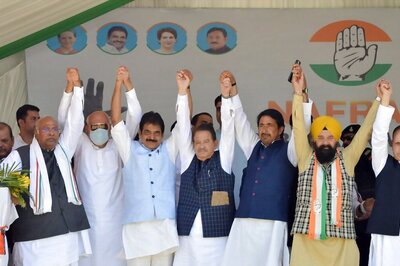
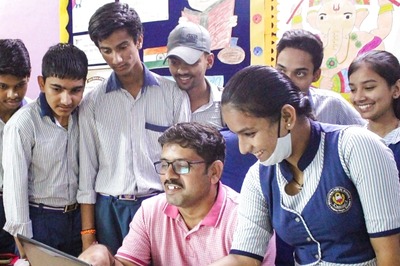

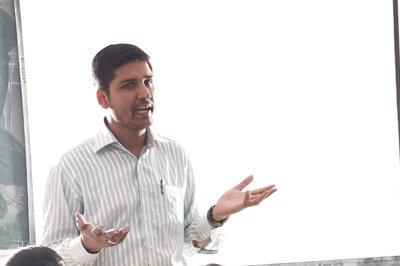
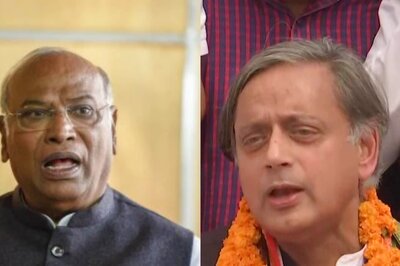


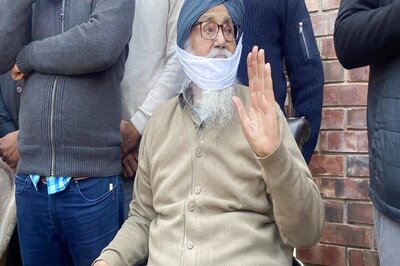

Comments
0 comment